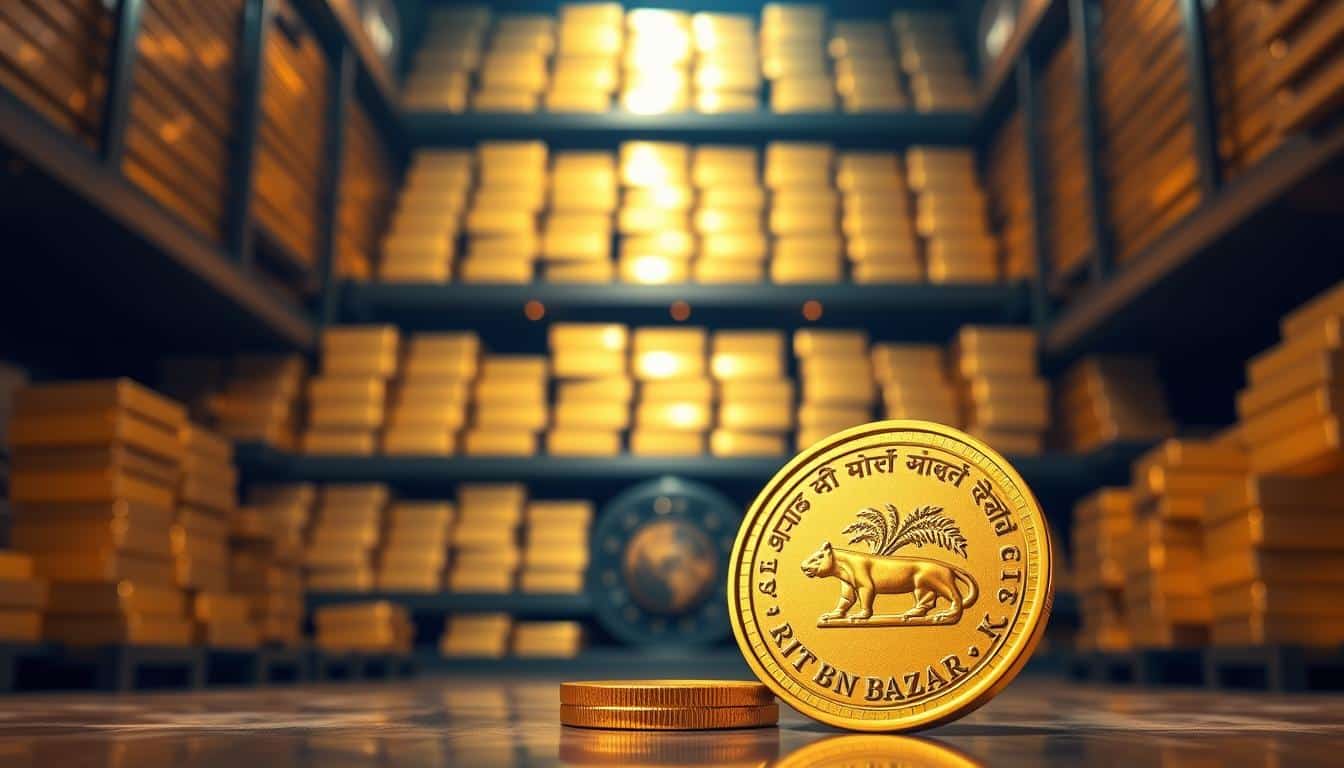India Ranks 7th Globally in Gold Reserves: Insights on RBI’s Role

Today marks Akshaya Tritiya, a day traditionally associated with the auspicious purchase of gold in India. As the world’s fifth-largest economy, India also ranks seventh globally in gold reserves. In recent years, central banks worldwide have increasingly turned to gold as a safe haven asset amid economic uncertainties, leading to a significant rise in gold purchases. The Reserve Bank of India (RBI) has been particularly active, acquiring substantial amounts of gold to bolster the nation’s foreign exchange reserves.
India’s Rising Gold Reserves
India’s position as a major player in the global gold market has strengthened over the years. Currently, it holds the seventh-largest gold reserves in the world, a notable increase from its tenth position in 2015. The World Gold Council’s data reveals that the proportion of gold in India’s total foreign exchange reserves has surged from 6.86% in 2021 to 11.35% by the end of 2024. This increase underscores the importance of gold as a stabilizing asset, particularly in times of economic turbulence.
The RBI’s gold reserves have seen remarkable growth, climbing from 653 tonnes in FY 2020 to 880 tonnes by March 2025, marking a 35% increase in just five years. This strategic accumulation of gold not only enhances India’s economic stability but also serves as a buffer against potential financial shocks. As global economic conditions remain volatile, the RBI’s focus on gold reflects a broader trend among central banks to secure their foreign exchange reserves.
The RBI’s Strategy Behind Gold Purchases
The RBI’s aggressive gold buying strategy is largely a response to the volatility of the US dollar. According to Madan Sabnavis, Chief Economist at Bank of Baroda, diversifying forex holdings through gold is a key objective for the RBI. The dollar’s fluctuations have prompted central banks to consider gold as a more stable alternative. Experts predict that this trend will continue, with central banks worldwide likely to increase their gold reserves as a percentage of total foreign exchange holdings.
DK Srivastava, Chief Policy Advisor at EY India, emphasizes the necessity of diversifying India’s foreign exchange portfolio amid global economic uncertainties. The decline of the Dollar Index from nearly 110 in January 2025 to below 100 suggests a weakening dollar, making it prudent for the RBI to enhance its gold holdings. This strategic shift aims to reduce reliance on the dollar and mitigate risks associated with currency fluctuations.
Benefits of Increased Gold Reserves for India
The RBI’s strategy not only involves acquiring more gold but also repatriating significant amounts back to India. Since September 2022, the RBI has moved 214 tonnes of gold to domestic storage, reflecting a commitment to maintaining a robust reserve amid global volatility. Sachchidanand Shukla, Group Chief Economist at Larsen & Toubro, notes that this move strengthens India’s foreign exchange reserves and enhances its economic stability.
Higher gold reserves also elevate India’s standing in the global financial arena. With a more substantial gold backing, India could encourage other nations to use the rupee for bilateral trade, potentially increasing its influence in international markets. As gold prices continue to appreciate, the overall value of India’s foreign exchange reserves is expected to rise, benefiting the government through higher dividends from the RBI. This strategic approach positions India favorably for future economic growth and stability.
Read More: Enhancing customer experience with floral decor
Observer Voice is the one stop site for National, International news, Sports, Editor’s Choice, Art/culture contents, Quotes and much more. We also cover historical contents. Historical contents includes World History, Indian History, and what happened today. The website also covers Entertainment across the India and World.

